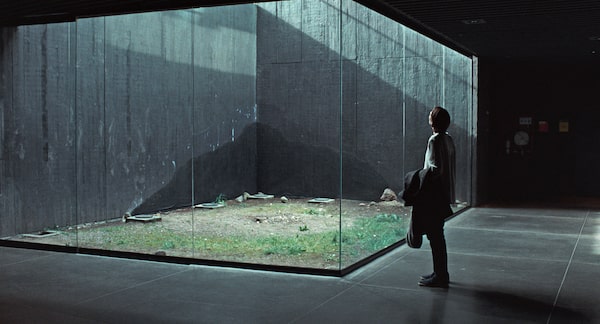
The Globe and Mail engaged in a written correspondence with Swinton to discuss what first drew her to 'Joe' and why people should buy tickets for movies the way they do for rock concerts.Courtesy of Elevation Pictures
In Memoria, the English-language debut by Palme d’Or-winning Thai director Apichatpong Weerasethakul, Tilda Swinton stars as an orchid farmer living in Bogota, Colombia, plagued by the sound of a mysterious banging only she can hear. In the hands of Swinton’s past collaborators – Bong Joon-ho, Wes Anderson – it could be easy to predict what might happen next. But Memoria is a meditation on the ineffable passage of time and mortality, a film you feel shaping you as the seconds in the director’s signature long takes slip by.
Swinton, who is also the executive producer, became a devotee of Weerasethakul (whom she affectionately calls Joe) 18 years ago. The making of Memoria took 15 years, as the two artists shared stories about their lives instead of script notes.
After premiering at Cannes in 2020, Memoria is now on a unique cinematic tour: screening exclusively in theatres around the world, week by week, in one city and in one movie theatre at a time. (It opens at the TIFF Lightbox in Toronto May 13, with other Canadian cities throughout May.)
The Globe and Mail engaged in a written correspondence with Swinton to discuss what first drew her to “Joe” and why people should buy tickets for movies the way they do for rock concerts.
Eighteen years ago, you wrote to Apichatpong expressing your admiration for Tropical Malady after seeing it as a juror at Cannes. What drew you in?
It’s dreamlike, occupied by intensely present and tangible humans, immersive and intoxicating. I remember watching it with Quentin Tarantino, who turned to me in concern that the reels had been switched by accident, so plunging and unconsciously switchback was its turn of tone and landscape. I found myself smitten to bits.
How are you and Joe aesthetic soulmates?
It’s a shared liking for a certain languorous rhythm – a fascination with sleep, with the wilderness, with the resonance of trauma, with silence and with dogs. We both like to be unsure of where exactly we are going and are up for both the trail and the untrodden snow.
It took 15 years to make Memoria. What was your involvement like?
For several years, there were no drafts, only an ongoing conversation back and forth. Joe and I talked for a long time about what roots we wanted to grow the film out of, sharing stories from our lives. We built a language between us, with which we started to mold a narrative. I have learned from experience not to be frightened by the long gestation. No filmmaker I have ever met has regretted an extra year of preproduction, and a project finds its time. Memoria also needed to find its home in Colombia, and that took years to hunt down. Frankly, I am more astonished when a film takes less than a decade to come into being.
Memoria’s relationship with sound design – and even the act of listening itself – is complex. Listening, being present and reacting is of course a hallmark of great acting, but I’m curious how you approached scenes where you had to imagine sounds that weren’t even there.
The beginnings of my work in film were in silent cinema. The majority of the films I made with Derek Jarman were silent films with soundtracks – The Last of England, The Garden, War Requiem. My attachment to cinema is primarily to one without talking in it.
In Memoria, the whole central premise of someone tied to a sound that they cannot accurately share with anybody else was a very interesting thing to play with. I spent a lot of time imagining various sounds as we shot, tracing them with my mind’s fingertips, right through to the end of their movements. Thanks to Joe’s long shots, this made for a very real absorption and a genuine engagement.

In Memoria, Jessica Holland (Tilda Swinton) begins to notice strange sounds. Soon she begins to think about their appearance.Courtesy of Elevation Pictures
The film’s world tour is unique in the age of digital-first cinema. You’ve run a travelling cinema in Scotland before, and have said, “streaming is not an event.” Is Memoria’s release strategy a sign of hope for cinephiles everywhere?
In the first year of the pandemic when people across the planet were asked what they longed for the most, the holy trinity was invariably family and friends, live music and big cinema. A film like Memoria needs to be in a cinema just as much as cinemas need films like Joe’s. My hope is that other films will follow Memoria’s lead and dedicate their releases to big-screen events only. While we think nothing of buying a ticket to our favourite band a year in advance, stick it under a magnet on the fridge and mark off the days in the calendar towards it, we might realize the same excitement can be accorded to a screening of a long-awaited film.
This interview was condensed and edited.
Special to The Globe and Mail
Plan your screen time with the weekly What to Watch newsletter. Sign up today.